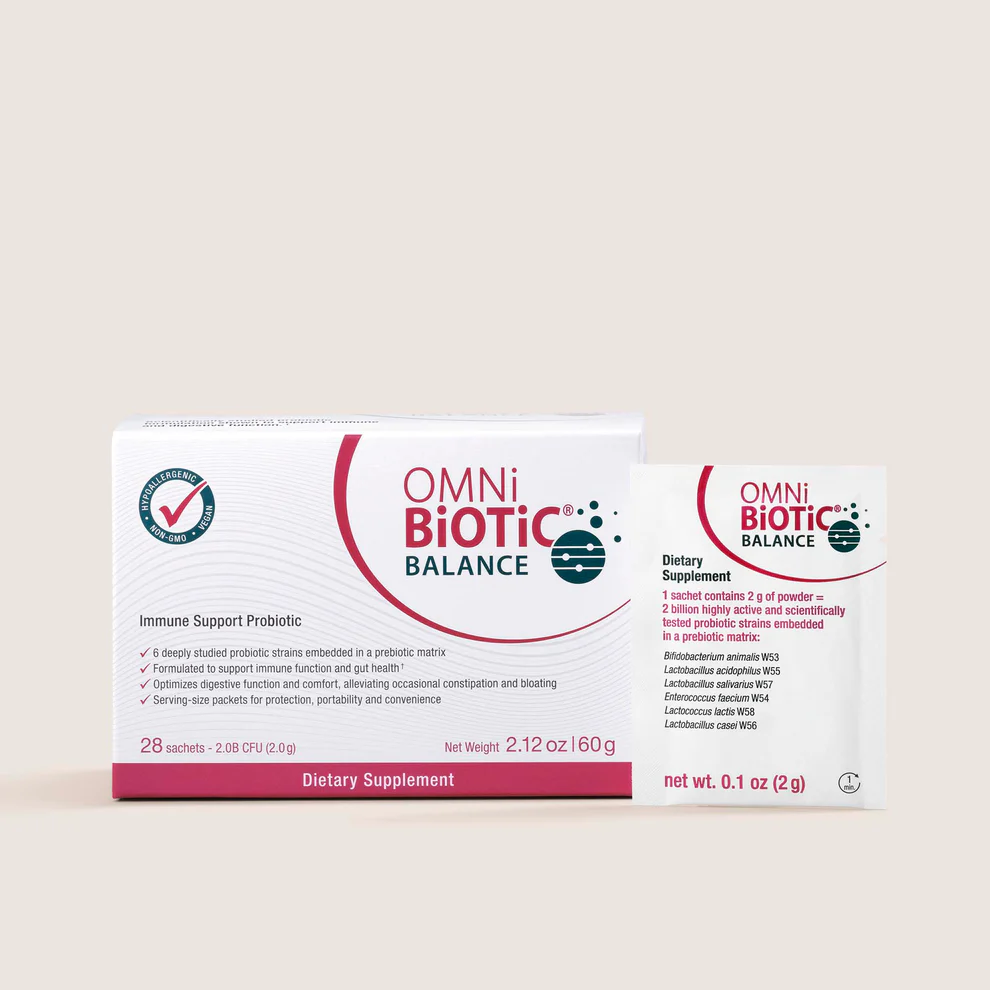Why Prebiotics Matter (Especially If You're Taking Probiotics for Women)

Let’s face it — we all want to feel good, have more energy, and avoid those annoying gut issues like bloating, gas, and discomfort. While probiotics often steal the spotlight in gut health conversations, there’s a key player working quietly behind the scenes: prebiotics. If you’re taking probiotics for women or considering it, understanding how prebiotics work is a total game-changer.
In this post, we’ll break down what prebiotics are, why they matter, and how pairing them with probiotics can supercharge your health. Ready to feel better from the inside out? Let’s dive in.
What Are Prebiotics, Anyway?
In simple terms, prebiotics are special plant fibers that your body can’t digest. Instead, they travel to your gut where they act as fuel for the good bacteria (aka probiotics) living there. These beneficial bacteria need food to thrive, and prebiotics are the perfect snack.
You’ll find natural prebiotics in foods like:
-
Bananas
-
Apples
-
Asparagus
-
Onions
-
Garlic
-
Barley
-
Beans
But here’s the problem: most people don’t eat enough of these foods daily. In fact, only about 5% of Americans get the recommended 25-38 grams of fiber a day — and prebiotic fiber is just a portion of that. No wonder so many people struggle with gut issues!
Why Are Prebiotics So Important for Gut Health?
You’ve probably heard that probiotics for women support digestion, immunity, and even mood. But without prebiotics, those good bacteria can’t do their job properly.
Think of probiotics as houseplants — they need food, water, and care to survive. Prebiotics are like plant food. Without them, your gut’s “good guys” starve, and the harmful bacteria can take over, leading to problems like bloating, constipation, diarrhea, and even skin issues.
Adding prebiotic fiber to your daily routine helps:
-
Fuel beneficial gut bacteria
-
Strengthen your immune system
-
Improve digestion and regularity
-
Support mental wellbeing
-
Aid in healthy metabolism and weight management
Prebiotics vs. Probiotics — What’s the Difference?
It’s easy to confuse the two since they sound so similar, but they have very different jobs:
-
Probiotics are live beneficial bacteria you consume via fermented foods (like yogurt, kimchi, or kombucha) or supplements.
-
Prebiotics are the non-digestible fibers that nourish those bacteria.
For anyone taking probiotics for women, it’s crucial to pair them with the right prebiotics to maximize their effectiveness. This combo is often called a synbiotic — think of it as the ultimate gut-health power duo.
What Happens If You Don’t Get Enough Prebiotics?
Without prebiotics, your beneficial gut bacteria can’t multiply and thrive. Over time, this can lead to:
-
Poor digestion and irregularity
-
Increased cravings for junk food
-
Lowered immunity
-
Skin breakouts or dull complexion
-
Increased risk of chronic conditions like obesity, heart disease, and colon issues
Even worse, a gut imbalance can mess with your mood, contributing to anxiety, brain fog, and fatigue. This is one reason gut health is often called the “second brain”.
How to Add More Prebiotics Into Your Life
It’s always smart to get prebiotics naturally through whole foods like vegetables, fruits, and grains. But if your diet isn’t perfect (whose is?), a prebiotic supplement can help fill in the gaps.
If you’re already using probiotics for women, adding a high-quality prebiotic can:
-
Amplify probiotic effectiveness
-
Support hard-to-reach gut bacteria that can’t survive in supplements
-
Improve digestion and overall gut health faster
One standout option is Omni-Biotic’s Omni-Logic line of precision prebiotics — specifically formulated to support good bacteria, immunity, metabolism, and gut lining health.
Can You Take Too Much Prebiotic Fiber?
Good news — most healthy adults can safely add prebiotics to their daily routine. A little gas or bloating is common when starting out, especially if your gut isn’t used to fiber. Start slow, drink plenty of water, and let your digestive system adjust.
Most experts recommend 3-5 grams of prebiotic fiber per day, but you can safely go higher once your body adapts.
The Takeaway: Prebiotics + Probiotics for Women = A Gut-Healthy Glow
Prebiotics may not be as famous as probiotics, but they’re just as important — especially if you’re using probiotics for women to support digestion, mood, and immunity. Together, they create a gut-friendly environment where beneficial bacteria can thrive.
If you’re ready to level up your gut health, make prebiotics part of your daily routine. Whether you get them through food or a clean, science-backed supplement like Omni-Logic, your gut will thank you.
Ready to Feel Your Best?
Don’t leave your gut bacteria hungry! Support your probiotics and gut health with precision prebiotics designed to work together. Check out Omni-Biotic’s collection of prebiotics and probiotics for women right here and start feeling better from the inside out today.
- Art
- Causes
- Crafts
- Dance
- Drinks
- Film
- Fitness
- Food
- Jogos
- Gardening
- Health
- Início
- Literature
- Music
- Networking
- Outro
- Party
- Religion
- Shopping
- Sports
- Theater
- Wellness


